3.11: Surviving Japan is a film of genre Documentary directed by Simon Hilton released in USA on 11 march 2013
3.11: Surviving Japan (2013)
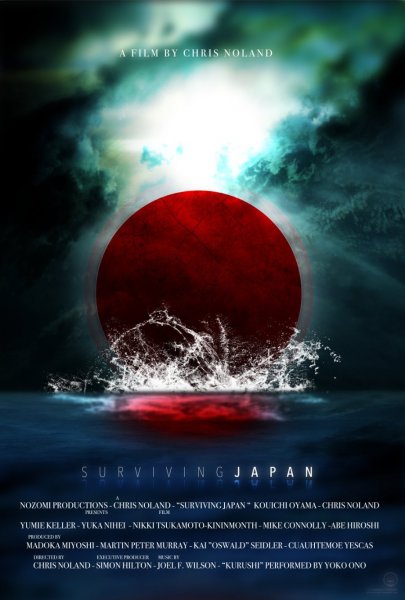
If you like this film, let us know!
Released in USA 11 march 2013
Length 1h30
Directed by Simon Hilton
Genres Documentary
Themes Environmental films, Seafaring films, Transport films, Documentary films about environmental issues, Documentary films about historical events, Documentary films about nuclear technology, Documentary films about technology, Disaster films, Films about earthquakes
Rating81%










Surviving Japan is a 2012 documentary film about the 2011 Tōhoku earthquake and tsunami and the Fukushima Daiichi nuclear disaster in Japan written and directed by volunteer and resident Chris Noland.
Synopsis
The film spans from March 11, 2001 to September 19, 2011, starting with Noland's own experience in the Tōhoku Earthquake and tsunami, Fukushima Daiichi nuclear disaster followed by volunteer activities in OfunatoComments
Leave comment :
Suggestions of similar film to 3.11: Surviving Japan
There are 1 films with the same director, 8965 with the same cinematographic genres, 10149 films with the same themes (including 1 films with the same 9 themes than 3.11: Surviving Japan), to have finally 70 suggestions of similar films.If you liked 3.11: Surviving Japan, you will probably like those similar films :
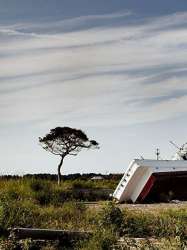
Genres Documentary
Themes Environmental films, Seafaring films, Transport films, Documentary films about environmental issues, Documentary films about historical events, Documentary films about nuclear technology, Documentary films about technology, Disaster films, Films about earthquakes
Rating67%





Surviving the Tsunami brings together social, environmental, and personal perspectives of the national catastrophe of the Fukushima nuclear meltdown. In the documentary, Kyoko Miyake travels back to her hometown in Namie, Fukushima, to revisit her old life and assess the trauma still lingering from the disaster. She revisits Namie, her mother's hometown and meets the people who depended on the success of the nuclear plant for their livelihood. The film also follows Bunsei Watanabe and Kyoko Miyake's Aunt Kuniko, two people who hope for the rejuvenation of Namie, despite the disaster that has occurred. Despite having lost family, friends, and jobs due to the meltdown and subsequent fear of the contamination zone, these two individuals are determined to rebuild their towns and neighborhoods and bring back the sense of community they once had. The film follows the residents of Namie, with emphasis on the experiences of Aunt Kuniko, as they come to terms with the reality of living in or near the "radiation zone" left in the wake the plant's nuclear meltdown. Surviving the Tsunami offers a different perspective on Japanese culture, national identity, human adaption, and global nuclear energy and proliferation.

The Mushroom Club (2005)
Origin USA
Genres Documentary
Themes Environmental films, Seafaring films, Transport films, Aviation films, Documentary films about environmental issues, Documentary films about war, Documentary films about historical events, Documentary films about nuclear technology, Documentary films about technology, Political films, Documentary films about World War II
Rating66%






No More Hiroshima (1984)
Genres Documentary
Themes Environmental films, Seafaring films, Transport films, Aviation films, Documentary films about environmental issues, Documentary films about war, Documentary films about historical events, Documentary films about nuclear technology, Documentary films about technology, Political films, Documentary films about World War II
 , 58minutes
, 58minutesDirected by Michael Camerini, John Junkerman
Origin USA
Genres Documentary
Themes Environmental films, Seafaring films, Transport films, Aviation films, Documentary films about environmental issues, Documentary films about war, Documentary films about historical events, Documentary films about nuclear technology, Documentary films about technology, Political films, Documentary films about World War II
Rating70%





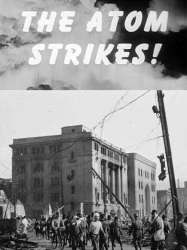
The Atom Strikes! (1945)
, 31minutesOrigin USA
Genres War, Documentary
Themes Environmental films, Seafaring films, Transport films, Aviation films, Documentary films about environmental issues, Documentary films about war, Documentary films about historical events, Documentary films about nuclear technology, Documentary films about technology, Political films, Documentary films about World War II
Rating58%





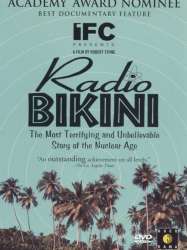
Radio Bikini (1988)
, 56minutesOrigin USA
Genres Documentary
Themes Environmental films, Seafaring films, Transport films, Documentary films about environmental issues, Documentary films about war, Documentary films about historical events, Documentary films about nuclear technology, Documentary films about technology
Rating74%






Original Child Bomb (2004)
, 57minutesGenres Documentary
Themes Environmental films, Seafaring films, Transport films, Aviation films, Documentary films about environmental issues, Documentary films about war, Documentary films about historical events, Documentary films about nuclear technology, Documentary films about technology, Political films, Documentary films about World War II
Rating68%





Original Child Bomb begins with a recreation of the dropping of Little Boy from the perspective of Hiroshima's residents. It is joined with both historical and contemporary footage and overlaid with various voice-overs. The documentary moves on to offer the accounts of several Japanese witnesses of the atomic bombing destruction.

The Day the Sun Fell (2014)
, 1h18Genres Documentary, Historical
Themes Environmental films, Seafaring films, Transport films, Aviation films, Documentary films about environmental issues, Documentary films about war, Documentary films about historical events, Documentary films about nuclear technology, Documentary films about technology, Political films, Documentary films about World War II
Rating75%





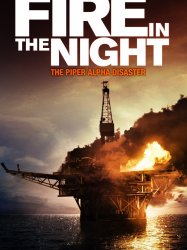
Fire in the Night (2013)
, 1h34Origin United-kingdom
Genres Documentary
Themes Environmental films, Seafaring films, Transport films, Documentary films about environmental issues, Documentary films about historical events, Documentary films about technology, Disaster films, Films about seafaring accidents or incidents
Rating75%





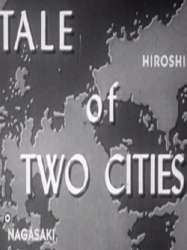
Tale of Two Cities (1946)
, 12minutesOrigin USA
Genres Documentary
Themes Environmental films, Seafaring films, Transport films, Aviation films, Documentary films about environmental issues, Documentary films about war, Documentary films about historical events, Documentary films about nuclear technology, Documentary films about technology, Political films, Documentary films about World War II
 Connection
Connection